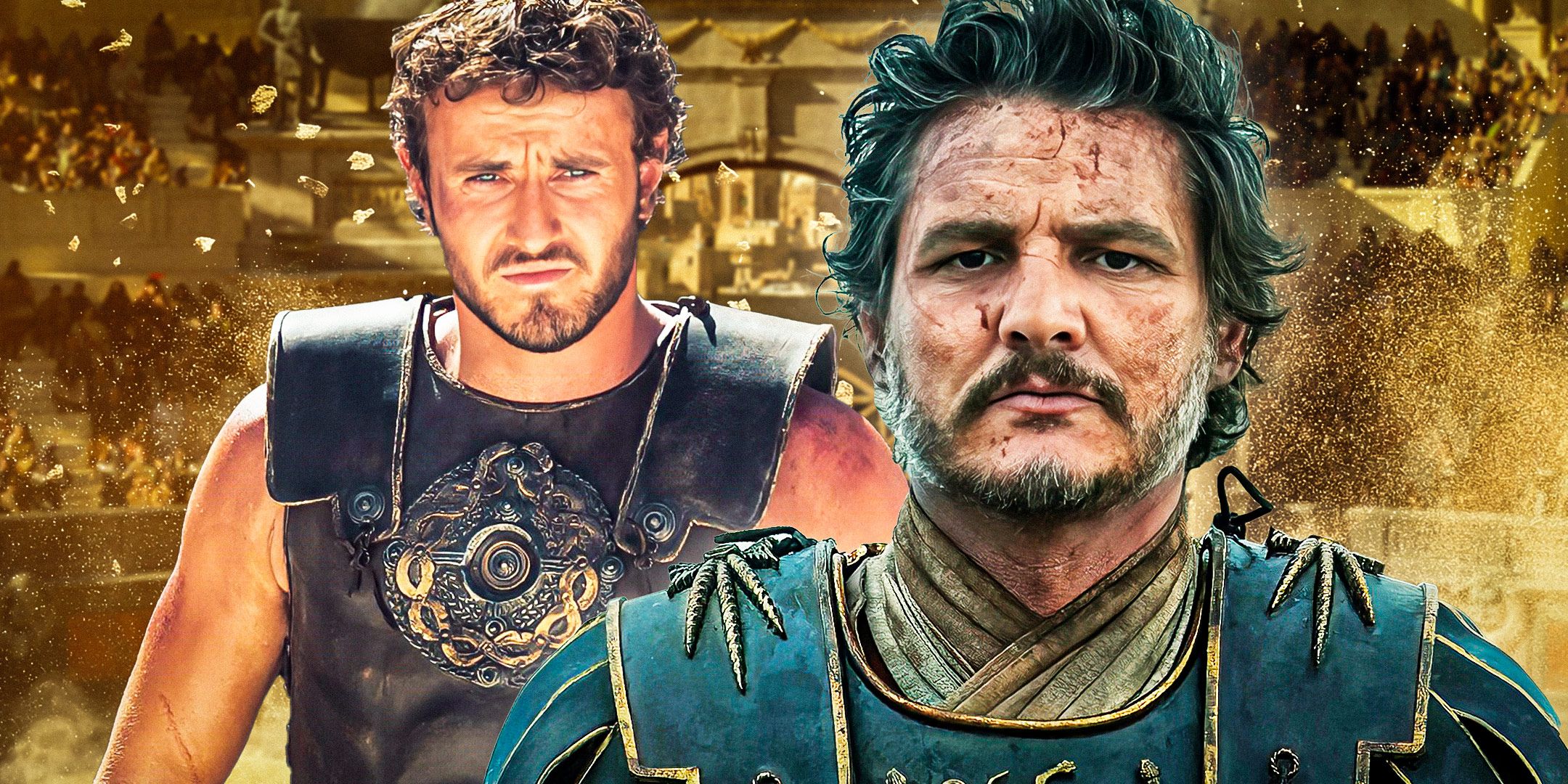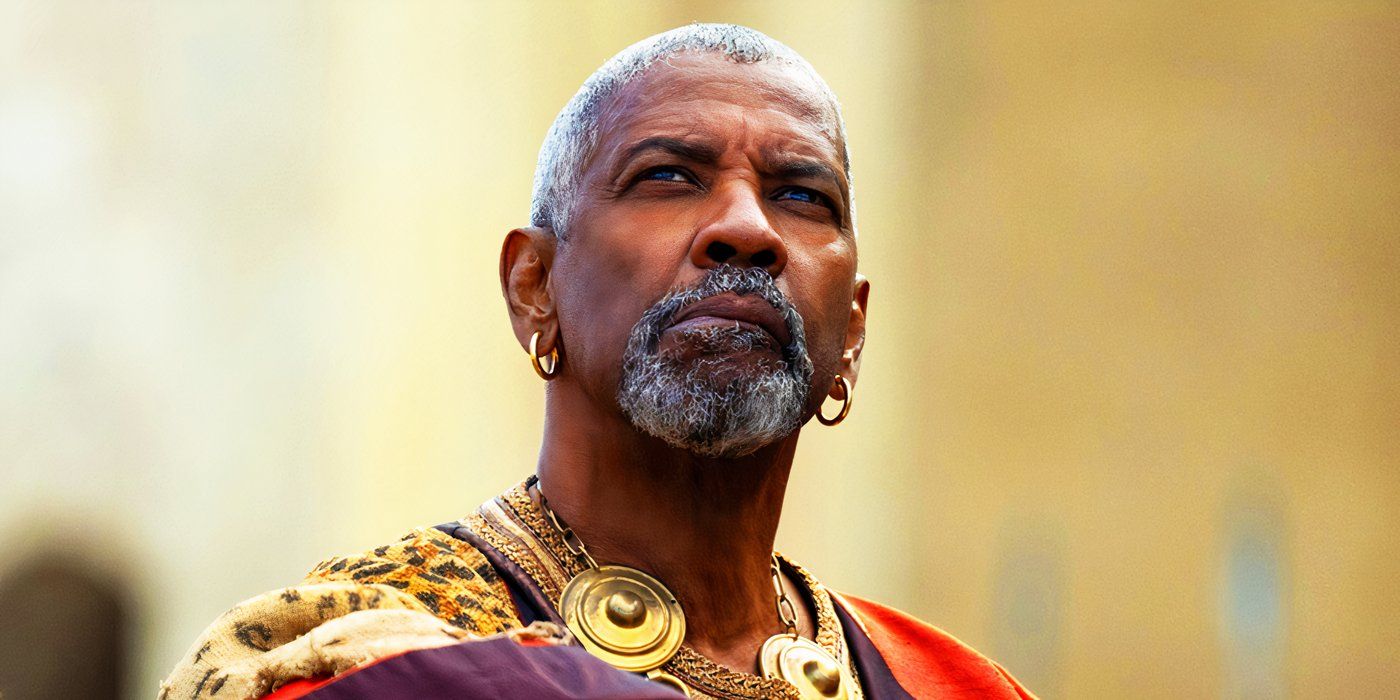The dialogue in the movie cements these ideas.
It comes from a range of well-developed characters, with somereturning characters fromGladiator.
Geta and Caracallas response to this is hunger to claim yet more territories.

14Violence Is The Universal Language.
This connectsGladiator IIto its historical setting.Violence was deeply ingrained in Roman identity, permeating every aspect of their culture.
According toCambridge University Press, Violent images were a means of visualising power in the Roman world.

Custom Image By Yailin Chacon
Macrinus highlights this structure which is dramatized in the gladiator arena.
For Macrinus, the only way to overcome being owned is to own others.
This makes him one of the most compelling villains of the franchise.

13The People Have Not Seen Hope In A Long Time.
The film is heartfelt.
It is highly rewatchable Maximus reuniting with his family in Elysium remains a tearjerker.

It retains the spirit of the original.
Hope returning to Rome is underscored by the setting of the sequel.
The twin Emperors, with their madness and cruelty, have accelerated this decline.

12Torture Me If You Want, But Do Not Lecture Me.
By rejecting their moralizing, he asserts his own moral compass and challenges their authority.
He served under him as a junior officer before his death.
11I Will Never Be Your Instrument In This Life, Or The Next.
Macrinus wants to make Lucius hisinstrumentto help him climb to success.
In this way,Lucius and his rage is a weapon.
Weapons are used symbolically throughout the movie to connote power; Lucius consistently shows a disregard for this.
Even against the odds, the strength of his resolve trumps any material disadvantage.
10What We Do In Life Echoes In Eternity.
Lucius referencing the afterlife mirrors Gladiator, since Maximus says this exact phrase in the first movie.
It also highlights the importance of the afterlife to ancient Romans.
Lucius goes through much toil inGladiator II,but his faith is an important part of his moral code.
9I Was Owned.
Now I Will Control An Empire.
He is also designed to offset Lucius.
Lucius desire to restore Romes ideals wins out over his rage.
However, Macrinus rage remains the center of his ambitions, ultimately seeking to continue the cycle of violence.
Despite this, he is a well-developed, sympathetic villain in the movie.
Gladiator IIs Macrinus is based on a real historical figure.The historical Macrinus did indeed ascend to the Roman throne.
A trusted confidant of Emperor Caracalla, Macrinus served as a praetorian prefect, a position of significant authority.
As a commander of the elite Praetorian Guard, he was deeply involved in Rome’s civil affairs.
This was during a military campaign against the Parthians in modern-day Iran.
8I Will Not Waste Another Generation Of Young Men For Their Vanity.
This stands out in an environment prioritizing military conquest.
This firmly establishes Acacius potential as an honorable, redeemable character.
Consequently, Pascal as Acacius is one of thebest performances inGladiator II.
Pascal’s portrayal of Acacius is arguably the most compelling and unpredictable character arc in the film.
It’s no surprise that Scott sought out an actor of Pascal’s caliber for this role.
A less nuanced performance might have portrayed Acacius as a blindly loyal soldier.
It is a quote from The Aeneid by Publius Vergilius Maro, a.k.a.
This scene inGladiator IIis clever.
Secondly,the context of the poem points to what Lucius is telling the two Emperors.
In contrast, Lucius honorable acts in life will pave the way for an idyllic afterlife.
6The Greatest Temple Rome Ever Built.
Because This Is What They Believe In.
His using this arena to further his ambition is all part ofMacrinus plan inGladiator II.
It is a place where power, not piety, reigns supreme.